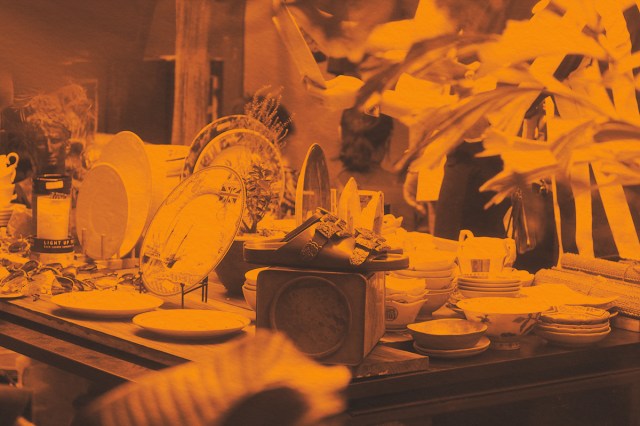
I love a good flea market. The thrill of perusing stalls of vintage clothing and finding quirky knickknacks and long-forgotten books is a favorite weekend pastime. While I’ve walked away with some knockout finds — including my favorite reading chair — I’ve never had the misfortune of encountering the tiny pests mentioned in the market name. So, where did the term “flea market” come from, and does it have anything to do with real fleas?
The origin of the “flea market” title remains somewhat of a mystery, though the etymology almost certainly traces back to the French marché aux puces, meaning “market of fleas.” But how did a market of secondhand treasures earn such an unseemly name? The most likely tale points to a bargain hunter who declared Saint-Ouen market — the largest outdoor bazaar in 1880s Paris — “le marché aux puces.” The market, lined with stalls of upholstered furniture and pre-owned clothing, seemed a natural place for nuisance insects to take up residency, and the eccentric moniker stuck.
This anecdotal etymology is supported by historical references, including an early-20th-century mention in G.S. Dougherty’s book In Europe: “It is called the ‘Flea’ Market because there are so many secondhand articles sold of all kinds that they are believed to gather fleas.” According to the Oxford English Dictionary, this is the oldest recorded mention of the English name.
A second, less on-the-nose theory points to mid-19th-century street renovations in Paris. As boulevards were widened, displaced shop owners lost their storefronts and were forced to “flee” to outdoor market stalls. This theory contends that the markets were initially called “flee markets” in English, and the spelling morphed into “flea.”Regardless of which theory you subscribe to, “flea” and “flee” might be linked by an earlier linguistic root. Some etymologists believe both derive from an Old English word, fleon, meaning “to flee.” This could explain how the name of a tiny jumping insect came to be associated with quick movement and, eventually, the bustling outdoor markets that they (allegedly) call home.
In any case, by the time secondhand markets became mainstream in the U.S. in the 1960s, the name “flea market” had lost much of its negative connotation. Today, no one, myself included, seems to bat an eye while purchasing antiques from a so-called “flea” market, a testament to the evolution of language (and love for a good bargain hunt).

















